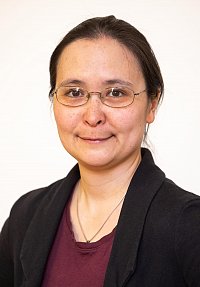Dr. Sonja Schierbaum

Dr. Sonja Schierbaum, Leiterin der Emmy Noether Gruppe „Praktische Gründe vor Kant (1720-1780)“
Website des Projekts: https://praktischegruendevorkant.wordpress.com/
Curriculum Vitae
März 2019 bis voraussichtlich Februar 2025: Leiterin der Emmy Noether Gruppe „Praktische Gründe vor Kant (1720-1780)“
Dezember 2015 bis Februar 2019: Wissenschaftliche Mitarbeiterin Uni Hamburg (DFG "Eigene Stelle": Handeln: Zwischen Freiheit und Rationalität – Leibniz, Crusius und der Satz vom zureichenden Grund)
2012 bis 2014: Post Doc Stipendium an der HU Berlin bei Prof. Perler
2012: Promotion in Philosophie, Universität Hamburg
Arbeitsschwerpunkte
Historisch: Mittelalter und frühe Neuzeit
Systematisch: Erkenntnistheorie, Philosophie des Geistes, Handlungstheorie
Publikationen
Monographie
Ockham’s Assumption of Mental Speech: Thinking in a World of Particulars, (Investigating Medieval Philosophy 6), Leiden: Brill, 2014.
Herausgebene Bände
“Negative judgement: ancient, medieval and modern perspectives”, in collaboration with Dr. Mika Perälä (University of Helsinki), special issue of Topoi (forthcoming)
Selbstbezug und Selbstwissen. Texte zu einer mittelalterlichen Debatte. Hrg., übers. u. komm. v. Dominik Perler und Sonja Schierbaum. Klostermann, Rote Reihe Bd. 71, 2014.
Aufsätze (Auswahl)
„Grounds without grounding? – An early modern distinction of reasons“, in: M. Roques (ed.), Grounding in Ancient and Medieval Philosophy, Leiden: Brill, (im Erscheinen).
„Umgang mit sich selbst als Dialog: Hannah Arendts Modell des Denkens“, in: Zeitschrift für philosophische Forschung 73 (2019), 2.
„Freedom of Indifference: Its Metaphysical Credentials According to Crusius“, in: Fudan Journal of the Humanities and Social Sciences, 2019, DOI 10.1007/s40647-019-00253-7, 2019.
“Late Medieval Theories of (Self-)Consciousness”, in: Philosophy of Mind in the Late Middle Ages & Renaissance, St. Schmid (ed.), vol. 3 of the series History of Philosophy of Mind, Acumen Press 2019, 125-143.
„Ockham on Awareness of One’s Acts: A Way Out of the Circle“, in: M. Klein, N. Osorio-Kupferblum, O. I. Tóth (eds.), Consciousness and Memory in Medieval and Early Modern Philosophy, special issue of Society and Politics, vol.12, no.2 (online edition), 2018.
“Intellections and Volitions: Ockham’s Voluntarism Reconsidered”, in: J. Pelletier; M. Roques (eds.), The Language of Thought in Late Medieval Philosophy, Springer: Dordrecht, 2017, 125-143.
“Between the Natural and the Supernatural: Ockham on Evident Judgements”, in: Topoi: 2016:1-10, open access, First online: 24 dec.
“Chatton’s Critique of Ockham’s Conception of Intuitive Cognition”, in: The Opponents of Ockham, Chr. Rode (ed.), Leiden: Brill, 2016, 15-46.
„Ockham on Tense and Truth”, in: Time and Tense, St. Gerogiorgakis (ed.), Philosophia Verlag (series: Basic Philosophical Concepts), München, 2016.
“Ockham on the Possibility of Self-Knowledge: Knowing Acts without Knowing Subjects” Vivarium 52:3-4 (2014): 220-240.
“Knowing Lions and Understanding „Lion“: Two Jobs for Concepts in Ockham?” In: Vivarium 48:3 (2010), 327-348.
“Two Kinds of Assent according to Ockham”, in: Logical Analysis and History of Philosophy (12) 2009, 269-287.
Interviews
„Questioning … Claude Panaccio“, in: Bochumer Philosophisches Jahrbuch für Antike und Mittelalter 16,(2013): 266-281.
Neuere Vorträge und Konferenzen
02/2019 Early Modern Conceptions of Freedom, Rationality and Practical Reasons , Hamburg, organisiert im Rahmen meines DFG-Projekts.
03/2019 “The principle of sufficient reason in the history of philosophy”, Hamburg, (organisiert zusammen mit Magali Roques, internationale Konferenz).
12/18 “Empowered action without (moral) constraints? – Attempting a two-layer view”, internationale Konferenz: “Hannah Arendt: Challenges of Plurality, Paderborn, (peer- reviewed), 13.-15.12.
08/2017 “Selbsterkenntnis. Was können wir über uns selbst wissens?”- Seminar im Rahmen der Ferienakademie 2017 der Begabtenförderung des Cusanuswerkes zur Erkenntnistheorie (eingeladen), Münster.
07/2017 “What’s possible? Early Modern Varieties of possibility”, in the context of the international conference “(Aristotelian) Possibilities and Necessities – Prospects and Criticisms, (invited by Dr. Marko Fuchs), Tutzing.



